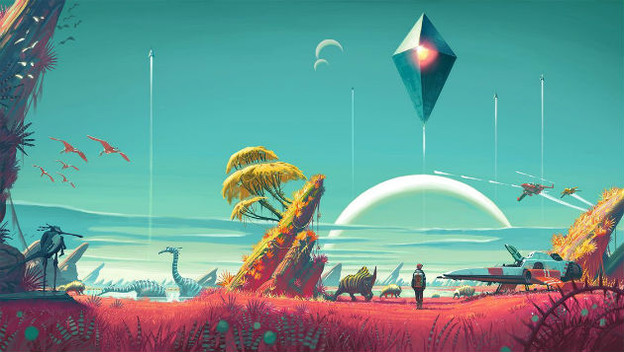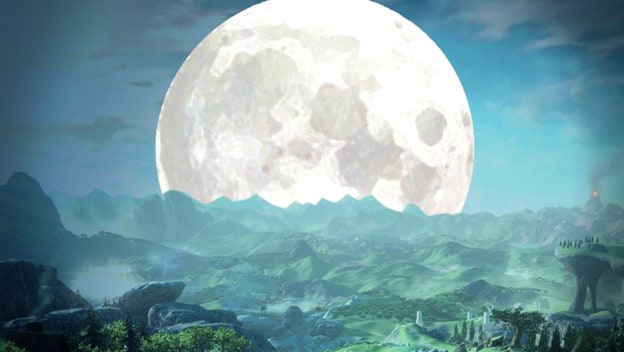The video game is such a wonderful medium for exploration. The medium is known for all of its possibilities, and yet whether or not they’re consciously aware of them, players follow strict rules. Having said that, designers are willing to challenge technical limitations to either create or play games that push the hardware boundaries. Today, I’m here to talk about two types of exploration games: Procedurally generated or “set design.”
No Man’s Sky is an impressive indie game. Relying on procedurally generated content, the game is able to produce 18 quintillion planets, and players begin their journey to the galaxy on a planet unique to them. Procedurally generated and randomly generated are usually used as interchangeable terms, but while the two are similar, they’re not the same. The big difference is randomly generated games rearrange levels based on numbers like in The Binding of Isaac . Procedurally generated games, on the other hand, rely on algorithms that allow the games to create content for the players to use or explore as with No Man’s Sky . Regardless of which term you use, both have been a staple in many a roguelike and the advantage is that they maintain a refreshing challenge for the player.
Set design is a coinage of my own, because it applies to just about any genre – RPG, FPS, open world, you name it. Some genres offer more options for exploration than most. For instance, Mega Man X – my favorite sidescrolling platformer of all time – is a mostly linear experience with the occasional hidden nook that rewards players with upgrades. Metroidvanias might also be a sidescrollers, but despite having only four directions, it’s not so clear where to go until you stumble upon new items. Skyrim might offer a scope similar to No Man’s Sky , but all of the ruins and quests were essentially handmade, as with the other aforementioned examples.

So, which one offers better options for exploration? Set design or randomly/procedurally generated content? Well, that depends on the player, really. Both types have their weaknesses. I love the challenge that randomly/procedurally generated games such as No Man’s Sky or The Binding of Isaac offer, but after a while I can’t help but notice the building blocks. Likewise, I’m drawn to set design in The Witcher 3 because I’m invested in the story and the lore. However, at some point I grow bored of having to constantly backtrack in an open world game. Backtracking becomes a more painful experience when you’re not drawn to the world in which you find yourself.
As usual, there’s no right answer when it comes to preference. Explorers will play the games that they feel offers them the amount of freedom they yearn for, and developers will keep creating games that push the hardware to its limits. And in a sense, we gamers will continue to explore store shelves for the next big game that appeals to our sense of adventure.
